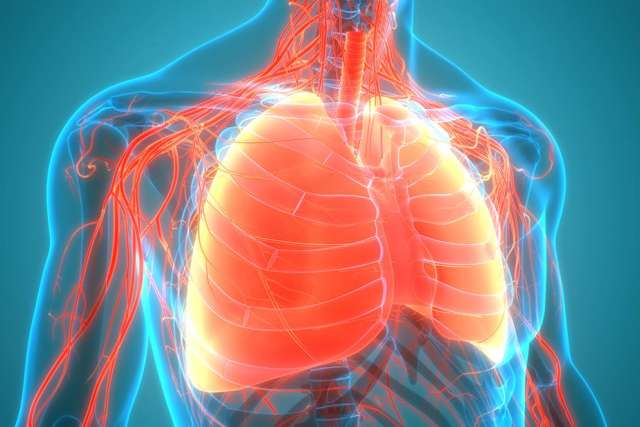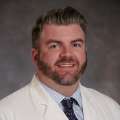Are people with chronic obstructive pulmonary disease (COPD) more likely to get COVID-19?
Not exactly, says pulmonologist and critical care physician Russell G. Buhr, MD, PhD.
“One of the misconceptions out there is that individuals with chronic obstructive pulmonary disease (COPD) are more susceptible to getting COVID-19,” he says. “A better way to think about it is that a serious respiratory virus like COVID-19 is much more dangerous to people with COPD.”
Dr. Buhr offers advice to help people living with COPD avoid severe consequences from the coronavirus and other respiratory viruses. The key is to follow public health guidance to reduce your risk of getting infected.
How COVID-19 affects the lungs
The coronavirus attacks cells that line the airways. Known as epithelial cells, they filter viruses and pollutants that could make us sick. COVID-19 damages those cells and causes them to thicken, preventing oxygen from passing into the bloodstream from the lungs. Without oxygen, people begin to suffocate and require breathing support, such as a ventilator.
People with COPD or other pulmonary conditions, particularly those with more advanced disease, have lower lung function. “Their reserve is much lower, so they are already starting from behind,” says Dr. Buhr. “The body can’t fight off infection as well — that’s the reason they have poorer outcomes when they develop COVID-19.”
Mitigation strategies are crucial to keeping COVID-19 at bay
The upside is that mitigation strategies that prevent you from coming into contact with the coronavirus are very effective. These are strategies we know well by now but sometimes choose not to follow:
- Wash your hands: Use soap and water for 20 seconds, or a dose of hand sanitizer with at least 60% alcohol content.
- Create physical distance: Avoid contact with sick people in your home. Outside your home, put 6 feet of space between yourself and others.
- Cover your face: Because people who aren’t yet symptomatic can spread the virus, people over age 2 need to wear face masks. Masks also protect you from inhaling and exhaling coronavirus-containing respiratory droplets.
- Vaccinate: Get your flu shot to give yourself better defenses against the influenza virus. New research suggests it may also protect you from developing severe symptoms from COVID-19.
Common myths surrounding COPD and COVID-19
Dr. Buhr often has to dispel myths for his COPD patients, including:
It’s safe to gather with family over the holidays
“I’ll have patients tell me that their kids will be in from out of town and want to get together for small holiday gatherings,” says Dr. Buhr. “I hate to tell people to skip gatherings with family members, but it’s vital this year.”
I don’t have to wear a mask because I have COPD
“There are no medical exceptions for a mask,” he says. “If you can’t breathe with your mask on, please don’t go out in public; it means your health is really compromised.”
I can’t go outside and exercise right now
“Many of my patients are experiencing lower quality of life because they are getting short of breath more easily,” says Dr. Buhr. “When people aren’t keeping up their baseline activity, they get out of shape easier. It’s not that the lung function has changed; they’ve just become deconditioned.”
Dr. Buhr says walking around the block with a mask is very low risk. If you can’t tolerate a masked outdoor walk, try doing home exercises such as Pilates, yoga, squats or lunges.
Vitamin D and heartburn medicine can help prevent COVID-19
“There are a lot of reports out there about potential immunity boosters such as vitamin D and famotidine (heartburn medicine),” says Dr. Buhr. “Vitamin D is pretty harmless if used as directed, but the science shows people with a vitamin D deficiency are the ones who more commonly get sick, not that a supplement prevents illness.”
He warns against jumping on any coronavirus prevention bandwagon without first discussing with your provider. “All drugs have side effects. Some are serious and some are not,” he says. “So it’s important to clear it with your doctor before taking over-the-counter medicines.”
If you have COPD, keep up your efforts to avoid getting infected
“People are really scared and tired of living through a pandemic,” says Dr. Buhr. “But it’s important to remember that public health guidance is there for a reason. Recommendations are coming from scientists whose job it is to make recommendations based on the best data available. The more we follow the guidelines, the sooner we’ll get through this.”
With regard to the news of coronavirus vaccine breakthroughs, Dr. Buhr says the first priorities for distribution will be congregant living areas (nursing homes) and health care workers. Then as doses become available it’s likely the higher-risk people, including those with COPD, will get priority.
“Once you hear the vaccine is approved and available, reach out to your physician,” says Dr. Buhr. “There will likely be more than one vaccine available, so your physician can determine which vaccine will be best for you.”
For more information about protecting yourself from the coronavirus if you have COPD, reach out to your specialist or your primary care physician.




